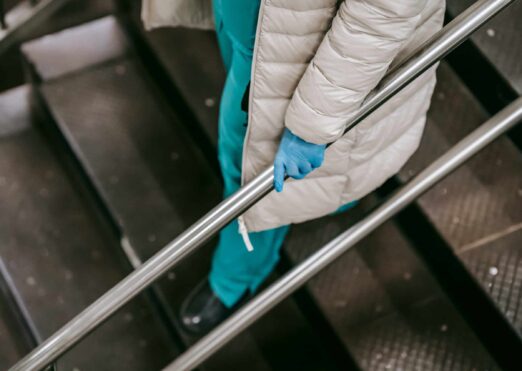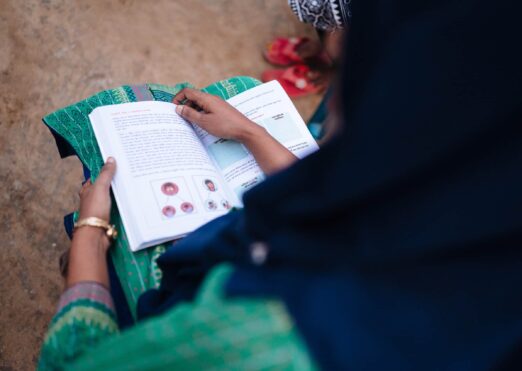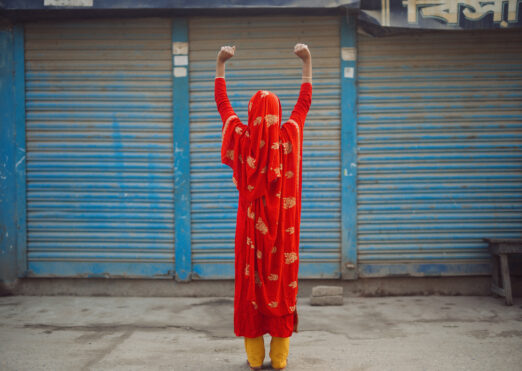Slavery in a lockdown
April 3, 2020
What happens to thousands of people living as slaves when a nation goes into lockdown? Few have ever had to answer this question, especially in Britain. Yet we are about to find out.
We identify more slaves in our country every year. Government figures released today reveal 10,627 people were potential victims of slavery and human trafficking in the last 12 months alone. That’s a 1,886% increase on the 535 people found in 2009, when they started recording it in this way.
These are British girls held and raped in apartment block brothels; young men bused-in from Bulgaria to wash our cars unpaid in the freezing cold; women from around the world battered behind normal front doors – treated like neglected animals not dignified domestic helpers. Vietnamese boys coerced into cultivating cannabis and kids in foster care delivering drugs under duress. The list goes on.
Sometimes people in slavery are out of sight; sometimes we walk straight past them on the street. They are usually dumped together, living in dirty confined spaces with little access to essentials or healthcare. Even worse in a pandemic.
The 10,000 figure is essentially a sample though, not the full picture. We should not criticise the Government or police just because the annual tally shoots up – in one sense finding more victims is progress, not failure. We know there are so many out there. Behind the scenes in Westminster and across police forces, leaders dismiss that total as the tiniest tip of the iceberg. ‘It will be at least 100,000’, they usually suggest.
Whether tens of thousands or one hundred thousand victims, we can be sure of something during this crisis: as with other hidden crimes like domestic abuse, the abuse and criminality will not stop. Not for COVID-19 or some Government decree. The organised crime groups are making far too much money.
How victims are exploited may change temporarily, but that they are exploited will not. As long as they hold captive swathes of powerless people, slavery can continue. These illicit businesses know what it takes to adapt, and will adapt fast.
So what happens to people kept as slaves during COVID-19? Anecdotally the reports are already coming in to Justice and Care.
Take the video calling platforms millions of us rely on for work meetings or family catch-ups at the moment – for slave traffickers that’s the next best option for their regulars if the grim double bed is out. The free platforms you can think of are gifts for trafficking bosses. Talk to anti-slavery police around the country and they are in little doubt: those British girls in apartment block brothels are now being abused online. For investigators, finding them is another matter.
Some out-of-sight car washes under suspicion have ignored Government instructions to close. But if the young Bulgarian men can no longer wash cars, gangmasters will send them out to knock on the doors of the self-isolating elderly – offering to shop for the essentials if they pay in advance. Or onto the farms for unregulated, unpaid work in the fields as the demand for basic food increases.
Also expect growing petty crime, attacks at ATMs and targeted Pharmacy thefts – moving mainstream medicines from the NHS to the black market. These criminals will seize any opportunity to make money.
Violence will spike. Already we’re dealing with extreme injuries. Take the victims housed in caravans on traveller sites, once ‘useful’ as money-makers but now redundant. Anger, alcohol and boredom fuel attacks on these people from their underworld bosses. Some make it to A&E but others won’t.
Street homelessness could rise in our towns and cities. Dumped from accommodation, there will be no-where else for the abused to go. In other cases, criminals will send people for ‘cuckooing’ – the takeover of properties for drug dealing and sexual abuse. Those with disabilities, learning difficulties and those unable to fight back watch on powerless. It is already more common than we realise, and tough to locate.
For the Eritrean woman held captive in domestic exploitation, ‘working’ from home is already hell on earth. But in the fear, she will be pushed harder and treated more brutally whether COVID-19 comes or not.
Drugs will be in even higher demand. So for the Vietnamese boys the heat, sleep deprivation, overcrowding and malnourishment just get worse. And whilst many of us are struggling to book Supermarket delivery slots, the explosion of so-called County Lines means there is a ready-made network of dealers to drop a different form of supplies on the doorstep if you know who to contact. Adults will take this on. Bikes, alleyways and footpaths on our housing estates make it far too simple. Recently a senior police officer told me it is like chasing shadows out in those places. Lockdown or not, moving drugs from one house to another remains as easy as a WhatsApp message in many of our communities.
As this virus takes root, businesses up and down the country are being forced to innovate or fall. Tragically, many may not find a way through. But for organised crime groups, COVID-19 could prove little more than a temporary glitch. To them, people are commodities – pandemic or not. The more terrified the better.
It may well prove tougher to bring victims through our ports and terminals at the moment – though attempted beach landings and lorry smuggling will continue – but the brutal truth is that for slave-owners already running victims here, there is plenty to play with. More British people will be caught up – vulnerable to exploitation if unemployment surges and times become desperate. As I write, Police anti-slavery teams are being disbanded to fight more ‘mainstream’ crime during COVID-19. I understand the sentiment but the truth is that one may lead to the other.
As crime groups adapt, we might find slavery becomes more visible: injuries uncovered; victims on the streets; online links shared more openly; higher-risk more public criminality in our communities. If we choose to look for it as we police our communities these next few months, we may quickly take ground.
But for all our sakes, we can’t afford to lose focus. When it comes to fighting this exploitation – virus or not – we are only just getting started.


